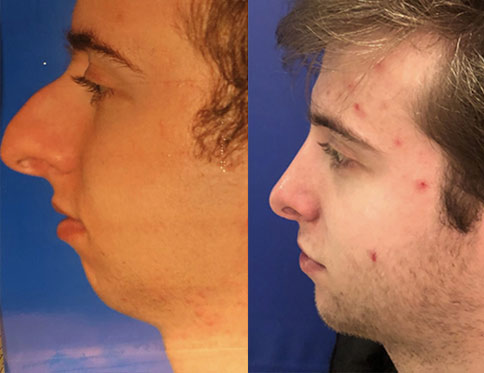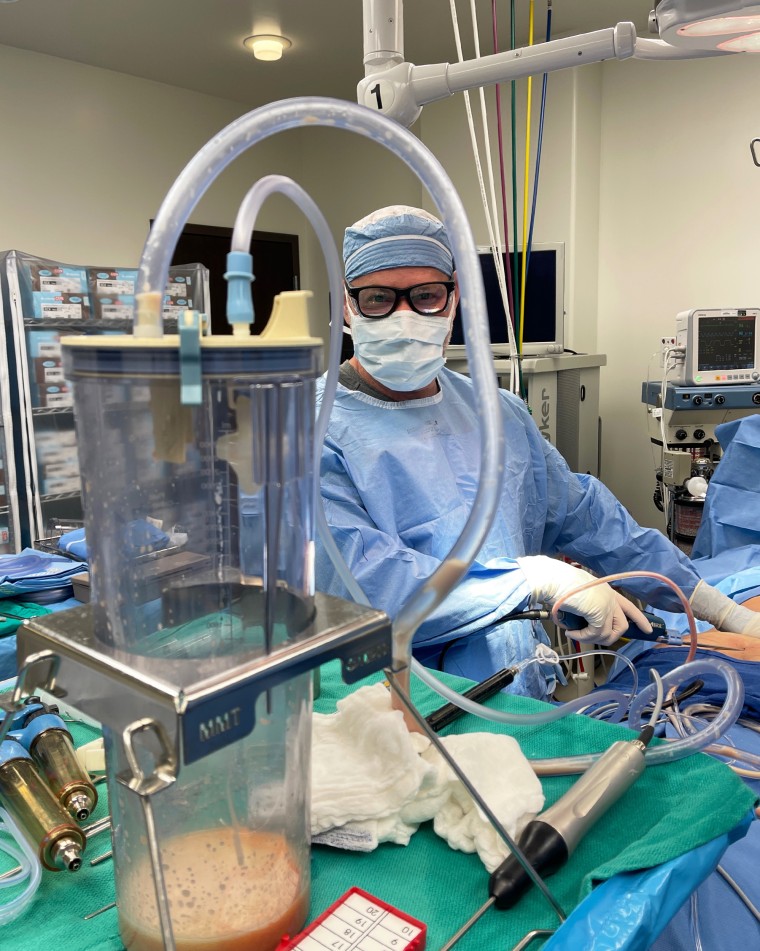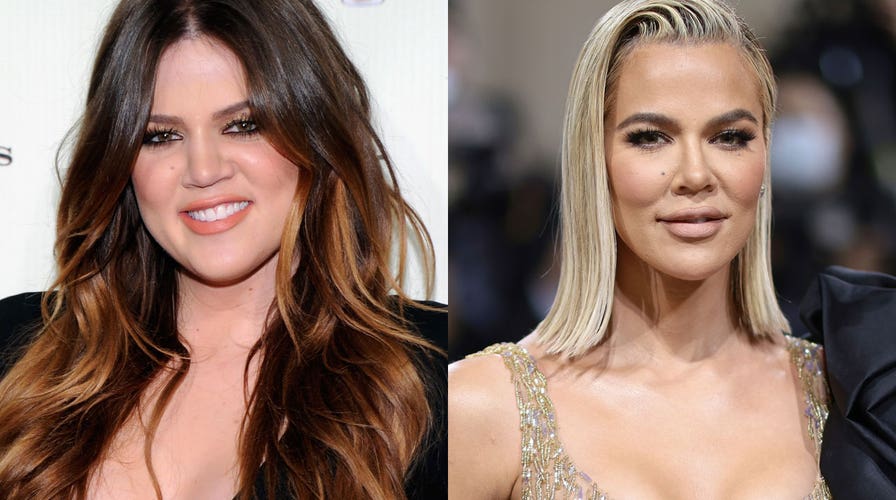A Deep Study the Typical Justifications for Looking For Plastic Surgery: Unpacking the Desire for Adjustment and Self-Improvement
The motivations behind the pursuit of cosmetic surgery extend past plain aesthetic enhancement, reflecting a nuanced interplay of societal assumptions, individual desires, and mental factors. As people significantly look for to straighten themselves with prevailing charm requirements, it becomes necessary to analyze the underlying factors that compel them to make such considerable changes. The influence of media portrayals and personal stories can not be ignored, as they shape understandings and desires in profound methods. This examination motivates essential inquiries concerning the moral implications and future trajectories of aesthetic procedures, welcoming further expedition right into the intricacies of self-improvement and identity.
Societal Stress and Appeal Standards

The impact of these beauty perfects can be profound, instilling a sense of insufficiency in those that do not adapt. As a result, lots of might look for cosmetic surgical treatment as a way of straightening their appearance with these social assumptions. mommy makeover bellevue. This wish for conformity can come from a broad range of inspirations, consisting of the goal for enhanced social condition, enhanced charming potential customers, or boosted expert chances
In addition, these pressures are not restricted to certain demographics; they influence individuals across different ages, sexes, and backgrounds, highlighting the prevalent nature of charm criteria. This extensive impact increases vital concerns about the ethics of plastic surgery and the effects of social criteria on specific choices. Ultimately, understanding these stress is important for cultivating a much more inclusive definition of appeal that celebrates variety.
Individual Experiences and Transformative Stories
Several people who undergo cosmetic surgical procedure record transformative experiences that extend beyond simple physical modifications. For numerous, these procedures work as a driver for enhanced self-worth and a renewed sense of identity. Patients regularly explain feeling liberated from long-standing insecurities, leading to increased self-confidence in both expert and personal worlds.
Take, for instance, the story of a young woman that went through boob job after years of feeling uneasy concerning her look. Post-surgery, she reported not only a newly found comfort in her body but likewise a significant renovation in her social life and career possibilities. Likewise, a middle-aged male who picked to go through a facelift shared exactly how the treatment revitalized his expectation on life, triggering him to seek new passions and connections.
These individual stories highlight the extensive impact plastic surgery can carry people' lives. As they embrace their changed selves, lots of find empowerment in their options, typically utilizing their experiences to inspire others contemplating comparable trips. Ultimately, these transformative stories highlight the complex reasons people seek cosmetic surgical treatment, linking personal development with the search of visual enhancement.
Mental Variables Behind Plastic Surgery
Many mental elements add to the choice to undertake cosmetic surgery, mirroring deeper psychological and psychological health considerations. People frequently go after surgical improvements as a way to attend to feelings of insufficiency, Click This Link reduced self-worth, or discontentment with their look. These mental inspirations can be rooted in previous experiences, social contrasts, or personal ambitions.
Body picture distortion is a prevalent concern, where individuals regard their physical qualities in an exaggeratedly adverse light. This distortion can lead to obsessive ideas regarding perceived defects, prompting the wish for medical change as an option - mommy makeover bellevue. In addition, the search of perfection and societal pressures can amplify these feelings, pushing people towards cosmetic procedures in hopes of achieving an idyllic variation of themselves
Moreover, the idea of self-improvement plays an essential function. Many individuals see plastic surgery as a path to boost their quality of life, thinking that boosted look will certainly result in enhanced social acceptance, far better connections, or boosted career possibilities. Ultimately, the psychological elements behind plastic surgery emphasize the complicated interplay between private self-perception and exterior influences, revealing the multifaceted nature of the need for adjustment.

The Function of Media in Perception
In today's society, media plays an essential function fit perceptions of beauty and self-regard. Through various platforms-- social networks, tv, and marketing-- idyllic standards of beauty are usually distributed, affecting individual desires and self-image. These portrayals often highlight narrow interpretations of beauty, primarily including vibrant, slim, and digitally improved images, which can create unrealistic standards for people striving to conform.
The influence of media is further worsened by the prevalent nature of social media sites, where customers are pounded with curated content that highlights aesthetic go to the website improvements, backing a society of contrast. This consistent exposure can result in feelings of inadequacy amongst viewers, prompting them to consider cosmetic surgical procedure as a method of attaining the perceived suitable. Study suggests that people that involve with these media representations are extra most likely to share discontentment with their look, enhancing the wish for surgical interventions.
Moreover, the normalization of cosmetic surgical treatment in media narratives can desensitize audiences, mounting such procedures as commonplace and even necessary for social approval. Hence, the media's portrayal of appeal not just affects private choices pertaining to cosmetic surgical treatment yet additionally contributes to a wider social discussion concerning self-worth and identification.
Ethical Factors To Consider and Future Patterns
Amid the growing popularity of plastic surgery, honest factors to consider bordering the technique have come to be significantly noticeable. As the need for treatments climbs, so as well do issues pertaining to educated permission, the mental inspirations of people, and the capacity for exploitation by specialists. It is essential for professionals to guarantee that individuals totally understand the risks and advantages, along with the implications of their choices, to promote a responsible strategy to aesthetic improvements.
Furthermore, the impact of social media sites and beauty standards questions about the influence on psychological health and wellness, especially among prone populations. As awareness of body picture issues expands, ethical technique necessitates a careful analysis of the motivations behind medical treatments. Specialists need to stabilize client desires with ethical obligation, making sure that decisions are rooted in genuine self-improvement instead than societal stress.

Final Thought
Finally, the quest of cosmetic surgery is influenced by a convergence of social pressures, personal experiences, and psychological aspects. The wish for alignment with prevailing charm standards, coupled with the capacity for transformative outcomes, highlights the complicated inspirations driving individuals towards these treatments. In addition, the duty of media in forming assumptions of appeal can not be underrated. As ethical factors to consider evolve, future trends in cosmetic surgical procedure will likely mirror recurring social dialogues bordering self-improvement and individual identification.
Frequently, social pressures and dominating appeal look at this site criteria play a substantial function in individuals' decisions to go after cosmetic surgery. Eventually, these transformative stories highlight the complex reasons individuals seek cosmetic surgical procedure, linking personal development with the quest of visual enhancement.
Lots of people view cosmetic surgical procedure as a path to enhance their high quality of life, thinking that enhanced appearance will certainly lead to increased social approval, much better partnerships, or enhanced career possibilities. Ultimately, the emotional aspects behind cosmetic surgical procedure emphasize the complex interaction in between individual self-perception and external impacts, disclosing the multifaceted nature of the desire for adjustment.
As ethical considerations advance, future fads in cosmetic surgical procedure will likely mirror recurring social dialogues surrounding self-improvement and private identity.